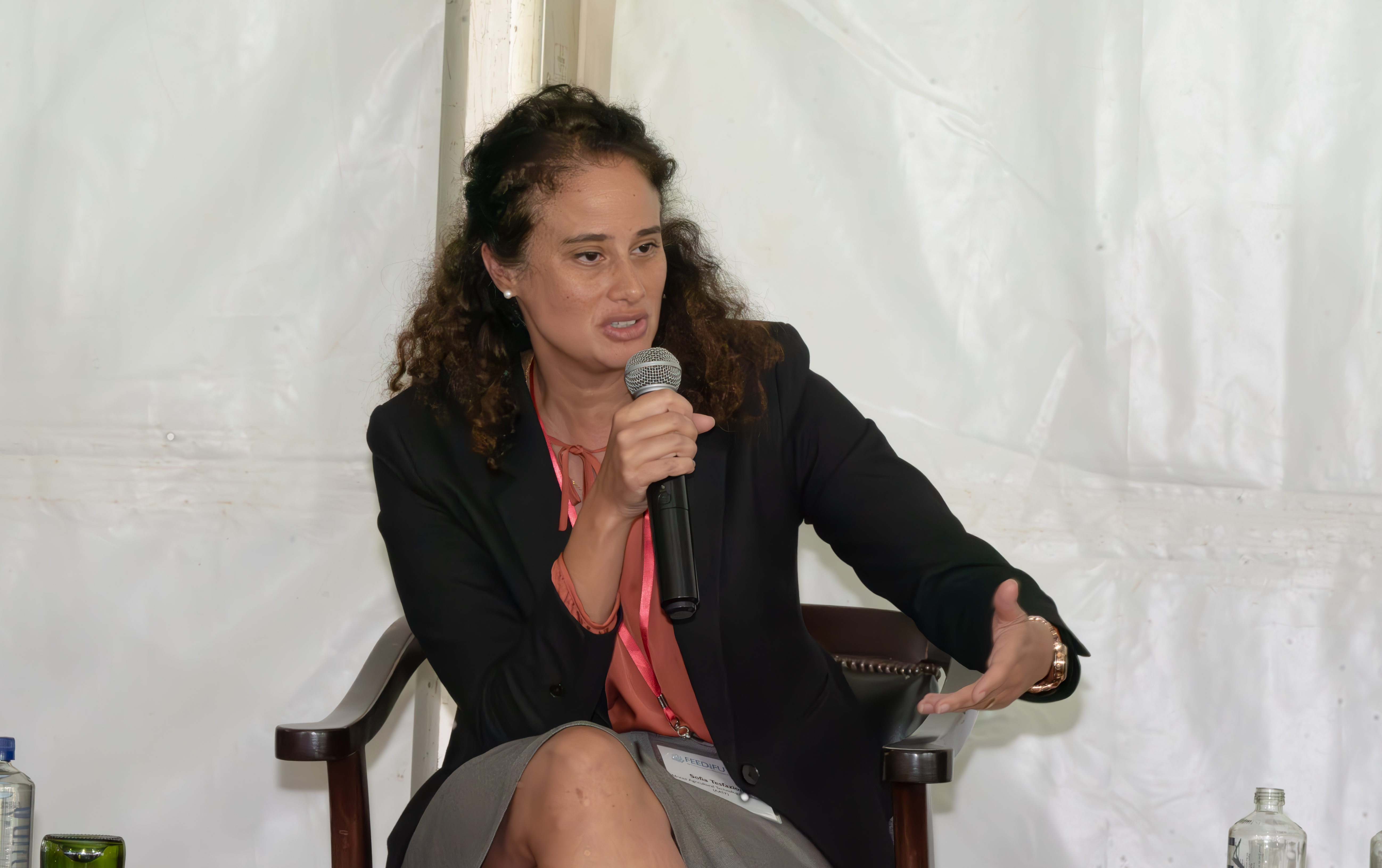
African Agricultural Technology Foundation (AATF) is implementing a holistic approach to combat the adverse effects of climate change on Africa’s agricultural sector says Sofia Tesfazion, Director, Resource Mobilization at the Foundation.
Recognizing the need for comprehensive solutions, AATF is aggregating climate-smart interventions across the entire value chain, emphasizing the importance of addressing the challenges faced by smallholder farmers, who bear the brunt of climate-related hardships.
According to Tesfazion, by bundling solutions, AATF aims to achieve sustainable outcomes, surpassing the limited impact of isolated interventions. This strategic shift is a significant step forward in the battle against the impacts of climate change, promising a brighter future for Africa’s vulnerable farming communities.
‘‘AATF plays a vital role in the transfer of agricultural technologies to address the multiple challenges faced by African farmers,’’ Tesfazion says. ‘‘Given the limited climate finance coming to Africa, Africa requires projects that address multiple facets.’’
Global climate finance is skewed towards mitigation whilst adaptation is key to Africa. Hence the need to ensure balanced systems approach mitigation to ensure resilience and adaptation, Tesfazion explains.
For instance, AATF is participating in a consortium of partners that are implementing the Bio4Africa project that is funded by the European Commission’s European Research Executive Agency and led by CIRAD that develops bio-based solutions and circular value chains. The objective of this project that is being piloted in four African countries – Ghana, Uganda, Ivory Coast, and Senegal is to transfer simple, small-scale, and robust bio-based technologies adapted to local biomass, needs and contexts to smallholder farmers which also contributes to sustained food security.
“The Bio4Africa project also drives the cascading use of local resources, diversifies farmer incomes and contributes to the development of a bioeconomy in Africa,” Tesfazion says. The project’s bio-based technologies being piloted include green bio refining, pyrolysis, hydrothermal carbonization, briquetting, pelletising, bio-composites and bioplastic production.
Given the low climate finance, Africa requires projects that address multiple facets including mitigation. Climate action should therefore be transdisciplinary as reflected in the Bio4Africa project by demonstrating the interaction of science, business, policy, resilience, and women empowerment through entrepreneurship, she adds.
Tesfazion was speaking during the 2023 Feed the Future Innovation Labs Regional Partners’ Meeting held in Nairobi in May, in a panel discussion titled “Concept of Systems Mitigation, Examples from Africa: What can we learn from the region, what are the demand signals, trade-offs?”
The panelists included Evan Girvetz, Thematic Lead for Climate Smart Technologies and Practices at the Alliance of Biodiversity International; International Center for Tropical Agriculture; Edward Amoah Idun from the Current and Emerging Threats to Crops Innovation Lab.
The discussion was moderated by Jerry Glover, Deputy Director of the Center for Agriculture Led Growth and Lead for Research Budget and Strategy at the Bureau for Resilience and Food Security, USAID.
According to Glover, AATF is a long-term USAID implementing partner in Africa.
Despite Africa being responsible for only 3% of global emissions, the continent faces a disproportionate burden of the adverse effects of climate change, according to Tesfazion. Moreover, she observes that Africa is only receiving 10% of what it requires for climate action.
While highlighting Africa’s climate change investment, Tesfazion noted that the continent primarily focuses on adaptation measures rather than mitigation efforts. A staggering 90% of African countries’ Nationally Determined Contributions (NDCs) revolve around adaptation, particularly in the agricultural sector.
Currently, Tesfazion observes that Africa is only receiving 10% of what it requires for climate action. This emphasizes the urgent need to explore how adaptation and mitigation co-exist in the design and implementation of projects to holistically address climate resilience.
In addition, Tesfazion advises on the need for capacity strengthening for circular economy programming as the current investments are either adaptation or mitigation focussed thereby losing the co-benefits.
According to Evan Girvetz, Thematic Lead, ClimateClimate Smart Technologies and Practices, Alliance of Biodiversity International and CIAT, the organization approach is to identify the most suitable strategies according to priorities and conditions to meet the organizations’ objective of sustainably increasing agricultural productivity and incomes; adapting and building resilience to climate change from the farm to national levels; and developing opportunities to reduce greenhouse gas emissions from agriculture compared with past trends.
‘‘There is no such thing as an agricultural practice that is climate smart per se. Whether or not a particular practice or production system is climate-smart depends upon the particular local climatic, biophysical, socio-economic and development context, which determines how far a particular practice or system can deliver on productivity increase, resilience, and mitigation benefits,’’ she said. Financing for Climate Smart Agriculture (CSA) needs to be scaled up considerably. Climate financing mechanisms need to give more attention to agriculture and CSA and the sector’s particular opportunity of combining adaptation and mitigation benefits while enhancing food security, Girvetz concludes.



















































































